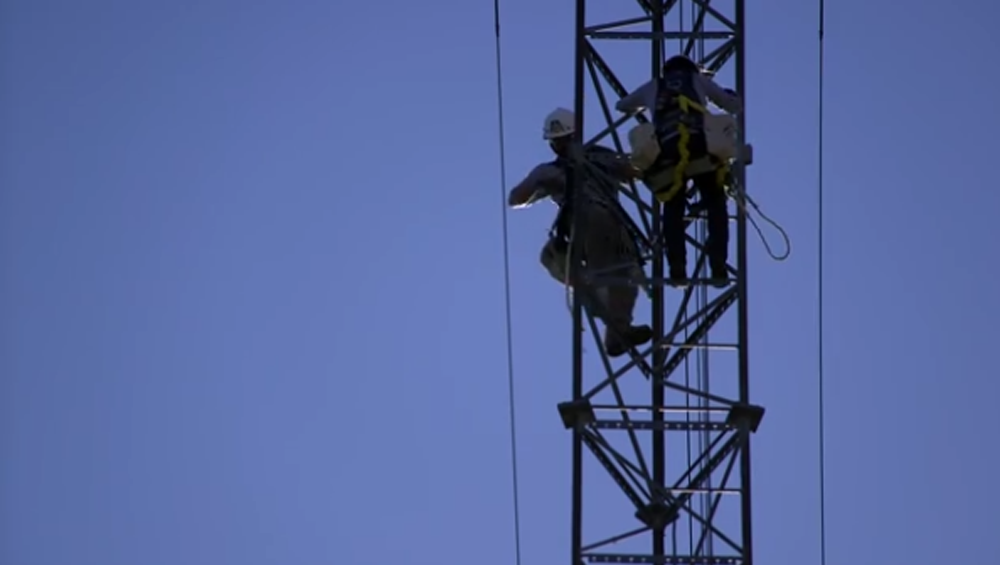Mako Communications, a Texas limited liability company has closed on the sale of the construction permit for low-power television station K07AAJ-D Bakersfield, Calif., to Roseland Broadcasting. The sale price was […]

The Senate has passed a bill that would give some low-power TV stations the ability to apply for Class A status and its additional interference protections. It must still pass the House to become law. LPTVs haven’t been able to apply to the FCC for such status since 1999.

Sens. Roy Blunt (R-Mo.) and Ron Wyden (D-Ore.) are introducing a bill that would give some low-power television (LPTV) stations the opportunity to apply for Class A television service status, which includes must-carry rights. LPTVs haven’t been able to apply to the FCC for such status since 1999.

The FCC’s Incentive Auction Task Force and Media Bureau have determined the amount of relocation funds they will give to qualified low-power TV stations and translators impacted by the broadcast incentive auction repack and said they will get 85% of that money out ASAP.

Money is on the minds of America’s low-power TV station owners these days. With the FCC announcing last month that it is now taking applications for repack reimbursement funds from the TV Broadcasters TV Relocation fund, LPTVs that have paid heavily to switch frequencies under the FCC’s spectrum repack are anxiously awaiting the check in the mail.
 In a public notice issued Feb. 9, the FCC’s Media Bureau and Incentive Auction Task Force said the “special displacement window” for LPTV and translator stations filing applications for channels opened April 10 and closes May 15. But LPTV Spectrum Rights Coalition Director Michael Gravino says the FCC just changed its guidance on how those should be filed and his members need another two weeks to digest the change and respond accordingly.
In a public notice issued Feb. 9, the FCC’s Media Bureau and Incentive Auction Task Force said the “special displacement window” for LPTV and translator stations filing applications for channels opened April 10 and closes May 15. But LPTV Spectrum Rights Coalition Director Michael Gravino says the FCC just changed its guidance on how those should be filed and his members need another two weeks to digest the change and respond accordingly.
The FCC’s Incentive Auction Task Force and the Media Bureau announced the opening of a 60-day filing window for those LPTV stations that are being displaced as a result of the post-incentive auction repacking process.The window will be open from Tuesday, April 10, through Tuesday, May 15, at 11:59 p.m. ET. Once a station has identified which channel it wants — and on which it can operate without causing unacceptable interference — it should file a construction permit application during this filing window.
FCC Lifts Freeze On Unpacked TV Changes
The FCC announced late Thursday that the freeze that has been in place since April 2013 that prevents full-power and Class A TV stations from filing applications to expand their coverage areas will be lifted temporarily, likely before the end of this year. The lifting of the freeze allows stations that were not repacked following the Broadcast Incentive Auction to file minor modification applications to expand their signal for the first time in nearly five years.
 By now, most broadcasters should be quite familiar with the FCC’s 10 phases for repacking television spectrum. Karl Voss, chief engineer of KAET Phoenix, says they better get up to speed fast on what he calls “Phase Zero” — any channel in 600 MHz or above that is not protected.
By now, most broadcasters should be quite familiar with the FCC’s 10 phases for repacking television spectrum. Karl Voss, chief engineer of KAET Phoenix, says they better get up to speed fast on what he calls “Phase Zero” — any channel in 600 MHz or above that is not protected.
The move is lauded by the NAB, which said: “Today’s order is a positive step towards mitigating the incentive auction’s impact on the tens of thousands of viewers who rely on these important sources of news, entertainment and emergency weather warnings.”
LPTV proponent Free Access & Broadcast Telemedia asks a federal appeals court to make the commission delay the incentive auction until cases objecting to the exclusion of LPTVs in the process can be resolved.
Maxwell C. Agha and his wife, Michelle Diaz Agha, have pumped $15 million into their small San Diego TV station over the last two decades so they could broadcast Spanish-language news, Catholic shows and local programming. But KSDY and many other small, low-power TV stations, which often broadcast foreign-language and religious programming, soon could be silenced — knocked off the air involuntarily by the federal government with no compensation to their owners or alternatives for their often low-income viewers.
Questions On FCC’s Post-Repack LPTV Plans
In addressing LPTV/translator future, the FCC declines to loosen several regulatory leashes. Whether – and if so, how many – LPTV/translators will benefit from the newly adopted measures is unclear.
The commission’s new Third Channel Sharing Report & Order allows channel sharing among LPTV and TV translator stations; extends the deadline for digital transition; and will offer assistance in finding new channels for displaced translator stations.
The broadcaster tells the FCC that “it is clear that not all LPTV stations will find a new home after the spectrum incentive auction and subsequent repacking of full-power and Class A stations. However, those LPTV stations that do secure a channel and that demonstrate a commitment to serving their local communities should be given the opportunity to apply for Class A status and secure a permanent channel in the post-auction environment.”
Appeal Clock Starts For Class A, LPTV Deadlines
Congress appears willing to help save LPTV stations, but the FCC has not been as committal to protecting what many see as a valuable resource for millions of Americans.
NTIA to LPTVs: ‘Last Call for Digital Grants’
On July 2, NTIA is set to close the door on applications for grants to reimburse the costs of digital conversion for low-power TV, Class A TV, TV translator and TV booster stations.
The thinning of the ranks of Class A TV stations continues. Recently, the FCC has started to propose the downgrading of a number of Class A television stations to LPTV status, presumably to make room for the almighty broadband to take over TV spectrum. Another 16 Class A’s now face the prospect of being demoted to LPTV status.









































